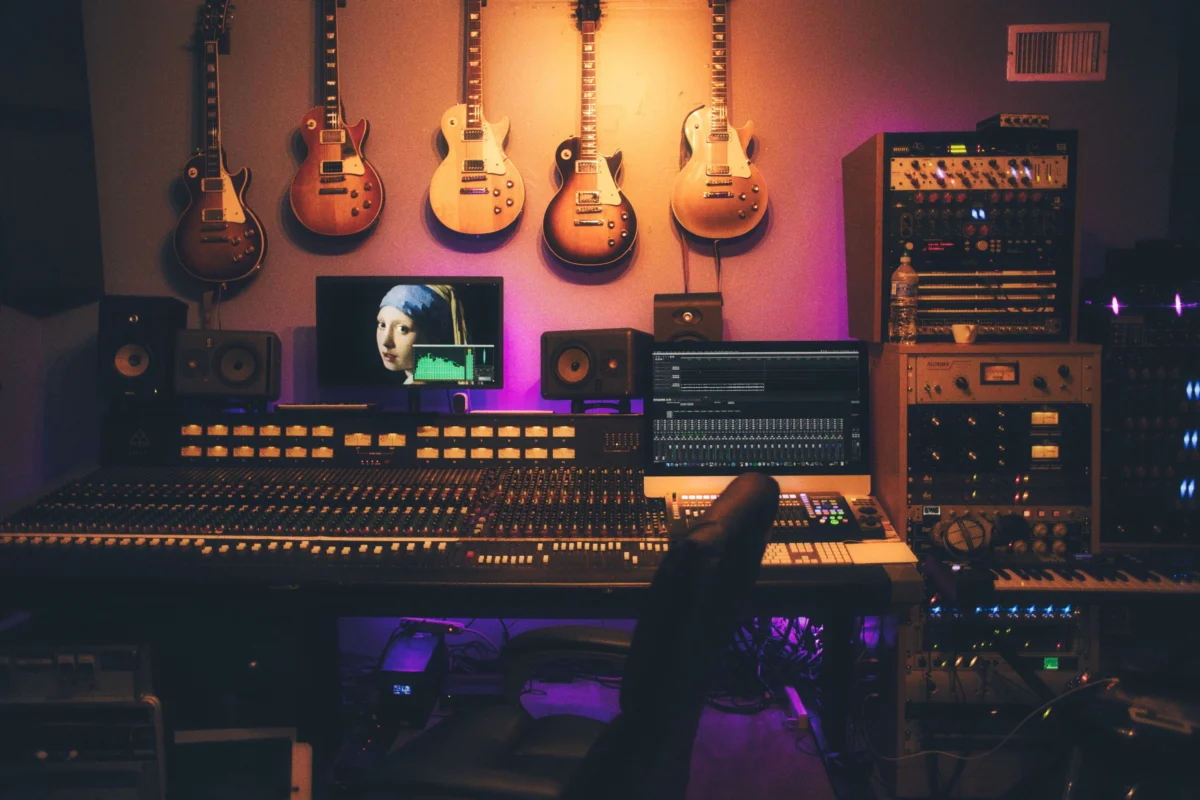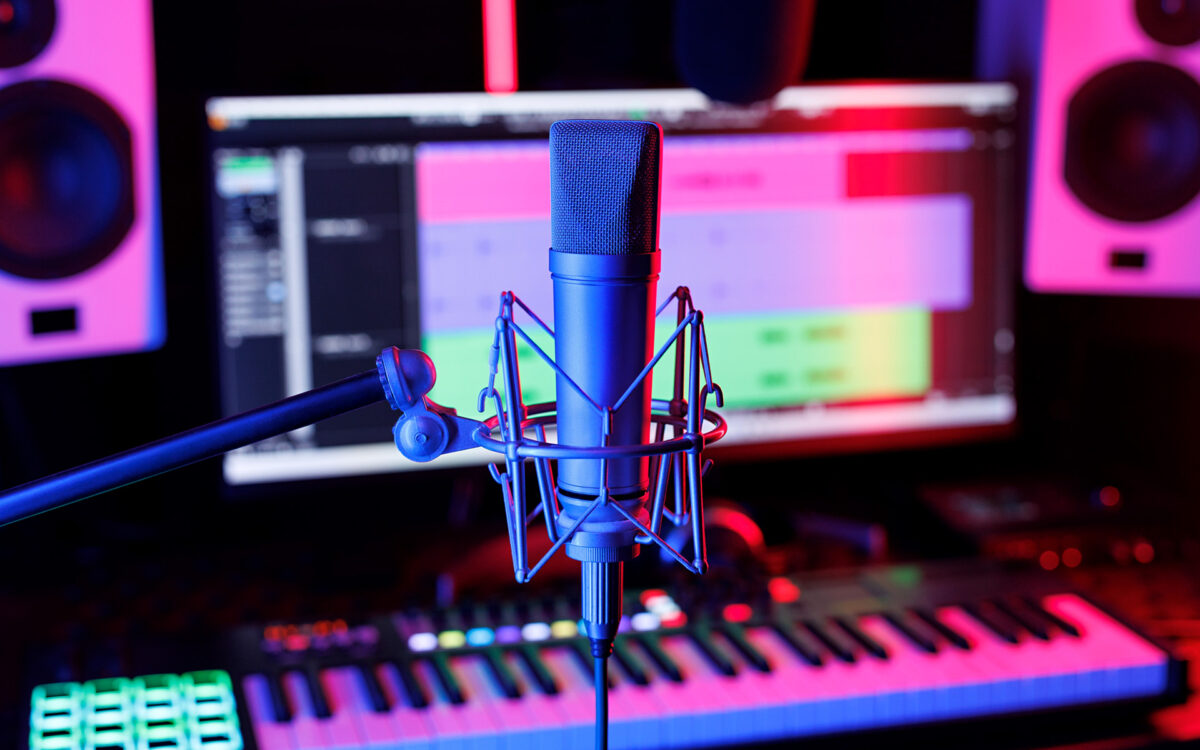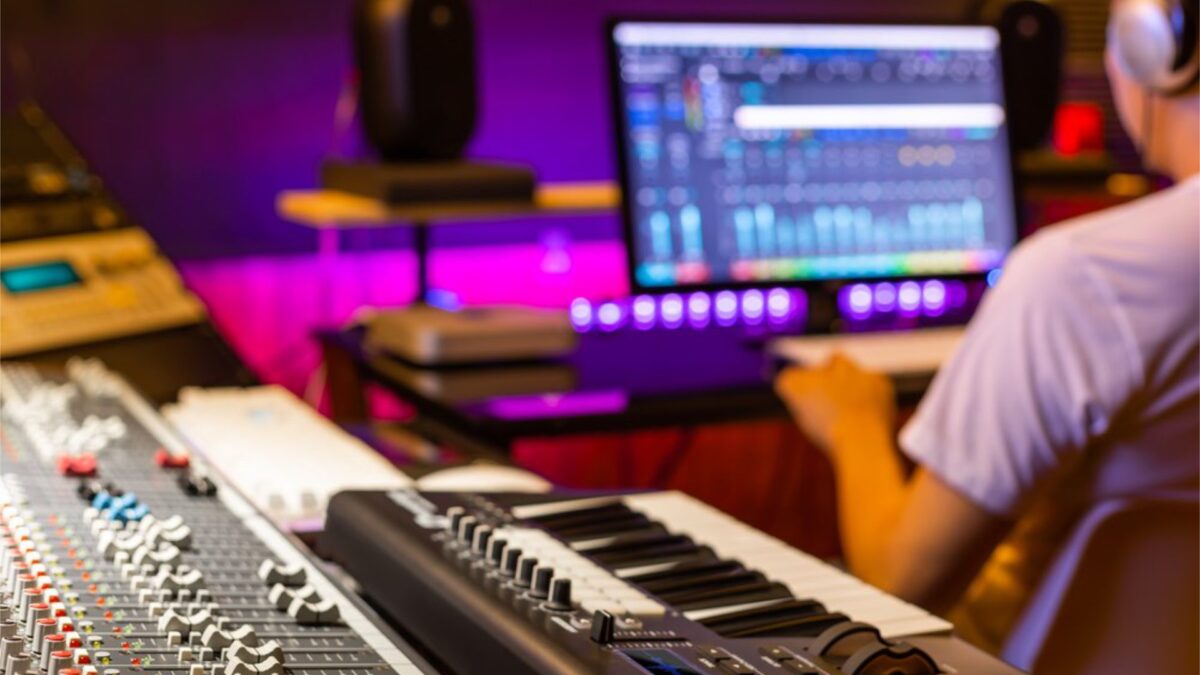Music Production & Sound Engineering
Music Production & Sound Engineering

Course Overview
The Music Production & Sound Engineering course is designed to train learners in the art and science of creating, recording, mixing, and mastering professional-quality music. The program covers every stage of music production — from songwriting and beat-making to studio recording, editing, and final mastering — using industry-standard tools such as FL Studio, Logic Pro, and Ableton Live. Students gain hands-on experience in both creative production and technical sound engineering, preparing them for careers in the music, film, and entertainment industries.
Course Objective
By the end of this course, learners will be able to:
Understand the fundamentals of music theory, sound, and acoustics.
Produce, arrange, and mix music across different genres.
Operate professional audio equipment and digital audio workstations (DAWs).
Record vocals and instruments with clarity and precision.
Apply effects, equalization, and dynamics processing in mixes.
Master tracks for distribution and streaming platforms.
Collaborate effectively with artists, producers, and sound engineers.

Who Should Enroll?
This course is ideal for:
Aspiring music producers and sound engineers.
Musicians, singers, and songwriters.
DJs and beat makers seeking professional studio skills.
Content creators and podcasters interested in quality audio production.
Anyone passionate about music creation and audio technology.
Course Modules
1. Introduction to Music Production
Overview of the music production process
Roles of a music producer and sound engineer
2. Digital Audio Workstations (DAWs)
Getting started with FL Studio, Logic Pro, or Ableton Live
Understanding audio interfaces, MIDI controllers, and plugins
3. Music Theory and Composition
Basic music theory: rhythm, melody, harmony
Songwriting, chord progressions, and arrangement
4. Recording Techniques
Microphone types and placement
Recording vocals and live instruments
5. Mixing Essentials
Balancing levels and frequencies
Applying EQ, compression, reverb, and delay
6. Mastering and Audio Finishing
Preparing tracks for streaming, film, or broadcast
Loudness standards and mastering tools
7. Sound Design and Sampling
Creating custom sounds and instruments
Using virtual instruments, synthesizers, and samples
8. Live Sound & Studio Management
Setting up and managing studio equipment
Understanding acoustics and live sound mixing
9. Music Business & Career Development
Copyrights, royalties, and music publishing
Branding and marketing as a music producer
Learning Methods
Practical studio sessions and recordings
Beat-making and mixing workshops
One-on-one feedback and mentoring
Real-world projects and collaborations
Assessment & Certification
Audio and music production projects
Mixing and mastering assignments
Final portfolio presentation
Successful participants receive a Certificate in Music Production & Sound Engineering
Career Opportunities
Graduates can pursue careers as:
Music Producers and Beat Makers
Sound Engineers and Studio Technicians
Mixing and Mastering Engineers
Audio Designers for Film, Games, and Media
Live Sound Engineers or Music Directors
With further experience, learners can advance into Studio Management, Creative Directing, or Record Label Production roles.
Duration & Requirements
Duration: 4 – 6 months (depending on program)
Requirements: Basic computer skills, passion for music, and access to a laptop with audio software installed. No prior experience required.

